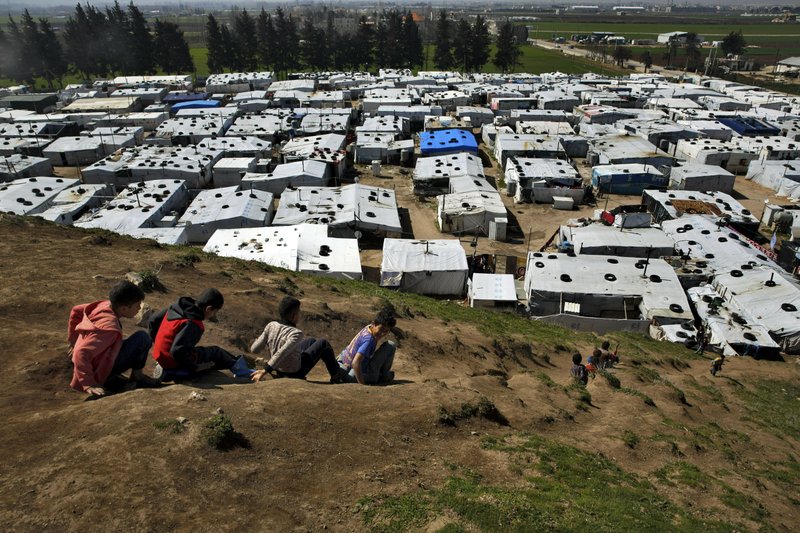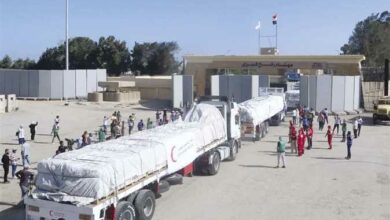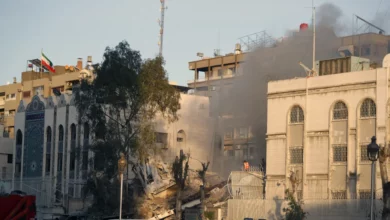
BEIRUT (AP) — The Syrian government is co-opting humanitarian aid and reconstruction assistance and sometimes using it to “entrench repressive policies,” an international rights group said Friday, calling on donors and investors to ensure their contributions are used for the good of the Syrian people.
Human Rights Watch said in the 91-page report released in Geneva that the Syrian government has developed a policy and legal framework to divert “reconstruction resources to fund its atrocities, punish those perceived as opponents, and benefit those loyal to it.”
Syria’s civil war, now in its ninth year, has killed some 400,000 people, wounded more than a million and displaced half the country’s population, including 5 million who fled as refugees, mostly to neighboring countries. Large parts of the country are totally destroyed and the government estimates reconstruction will cost some $200 billion dollars and last 15 years.
Many Syrians rely on aid to survive amid poverty and lack of food and medicine in parts of the country that had a pre-war population of 23 million.
“While seemingly benign, the Syrian government’s aid and reconstruction policies are being used to punish perceived opponents and reward its supporters,” said Lama Fakih, acting Middle East director at Human Rights Watch.
“The Syrian government’s aid framework undermines human rights, and donors need to ensure they are not complicit in the government’s human rights violations,” Fakih said.
The report notes one case in which an unnamed U.N. agency decided to partner with a local group founded by a member of the pro-government National Defense Forces — which the opposition blames for major atrocities — to implement a project. HRW says despite warnings, the U.N. agency moved forward only to discover six months later that the local partner never implemented the project, despite receiving money from the U.N.
It also mentions, without giving names, senior government officials who own stakes in various businesses and are known to fund “abusive entities,” such as the pro-government NDF. The report warns investors and donors that there is a risk to becoming involved in these sectors because they might indirectly be working or funding abusive individuals or entities.
“As the number of international humanitarian organizations seeking to register and transfer their operations to Damascus increases, the risk of a slippery slope is increasingly significant,” the report warned.
The report found that in extreme cases, reconstruction projects that rehabilitate infrastructure of “abusive government agencies can facilitate abuses by empowering them to continue forcibly displacing, torturing, and arbitrarily detaining individuals.”
By BASSEM MROUE
FILE – In this March 12, 2019 file photo, displaced Syrian children slide down a hill, above a refugee camp in the town of Bar Elias, in Lebanon’s Bekaa Valley. The Syrian government is co-opting humanitarian aid and reconstruction assistance and sometimes using it to “entrench repressive policies,” an international rights group said Friday, June 28, calling on donors and investors to ensure their contributions are used for the good of the Syrian people. Human Rights Watch said in the 91-page report released in Geneva that the Syrian government has developed a policy and legal framework to divert “reconstruction resources to fund its atrocities, punish those perceived as opponents, and benefit those loyal to it.” (AP Photo/Bilal Hussein)



